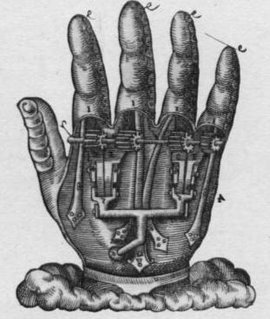I read with great interest the Islamic Era Science Time Line.
Clearly science was a major part of Islamic history: alchemy, free libraries, mathematics, medicine, philosophy.
It has been well documented that in recent history, at least from the time of the collapse of the
Ottoman Empire (1281-1923), there has been a sharp decline in the involvement of Muslim countries during their secular regimes in development and research of the “sciences, innovation, book publishing, art and literature”.
As well, Islamic politics in Muslim countries are depicted as trigger happy and intolerant when it comes to any form of dissent and ruthlessly literal in their interpretation of the Koran, leading to authoritarian nonsense such as
forbidding male doctors to attend to female patients and banning music on public transport.
Islamic principles and laws based on the Koran (which I have never read) seem to make strange bedfellows with science.
In my mind the Koran limits human activity, limits the boundaries of reason and hems in any attempt to understand the universe except through the irrationality of the mystical.
Their universe is already, always has been, delineated and authoritatively defined by the word of God.
The Islamic claim that humans can not even contemplate the mysteries of the universe is, in the world scientific community, refuted every day with advancements in every field of scientific enquiry, especially in biotechnology and nanotechnology (that’s not to say that this progress is all good – global warming, the toxic air and water of the world are mainly problems of scientific hubris and Western capitalist/consumptive greed).
It is a sad fact that Islam concentrates great attention and money on military R&D, while many of their countries suffer poverty and horrendous food shortages: “For many Islamists, achieving independence from Western nations, defense and national security are higher priorities than the Islamic duty to care for society’s poorest”. On the other hand, the poor and the needy are neglected in wealthy Westernized countries as well, although agencies and institutions are democratically working at ‘ground zero’ in genuine attempts to ameliorate the plight of so many that fall through the cracks of a harsh and unforgiving society.
I sympathize with the Islamic wish to govern their own countries, their own way, without the help or support or interjection of Western ideas and ideals, but it would be in their best interest to encourage independence and freedom of thought instead of an intolerant, literal, blind obeisance to the ancient Koran which inevitably allows the world, even Third-World countries, to outpace them in social, political and educational advancements: “How literally they interpret the Koran will clearly influence how the new Islamist governments regulate science and technology.”
It was encouraging to read about the Muslim Brotherhood’s Egyptian scholar, Yusuf Al-Qaradawi, who supports critical thinking and self-criticism. He worries that Islamist opposition movements are “too literalist and are not doing enough to encourage independent thinking using reason”, thinking which they fear will weaken the Islamic teachings. If they truly believe in the limitless, omnipotent knowledge and mystery of their God then they should have nothing to fear. Clearly an Islamic purist mindset that only functions in ancient shared histories and traditions could create a repressive atmosphere. Already there are reports of crack downs on reformist movements and restrictions on female university admissions, for example. In an interview with Mostafa Moin, a doctor and medical researcher who has served in Iran’s government, he does not see Islam as ‘anti-science’ but he is concerned that “superficial, narrow-minded and non-democratic interpretations of Islam – and the political behaviour of certain traditional administrators – risk having a negative impact on both scientific development and social reforms in Iran.”
David Nobel talked about Western enlightenment science and technology which entailed both pious service to and a devout effort at identification with divinity through reason and rationality. The philosophical, sociological, technological logjam between the West and the East now may be as simple or complex as the difference between Western belief in technological determinism, whereby our cultural values, social structures are determined by technical forces, and Islamic tradition that views culture, society and religion as determinates of economic, social and political arrangements. Both East and West attempt to construct a unitary reality, a reductionism that views and corrals identifies negating how ones’ reflexive perspective of the embodiments of individualism, community and society can coexist. The big difference I see is how the individual is treated and legitimized. The Islamic Muslim is born into his community and is assigned a certain role or social stigmatization (caste system), a priori, that contains and restrains him/her – much like in medieval times when you where born either a serf or a Lord, your destiny already prescribed and there was no climbing up the managerial ladder. The logic of this is that the community, religious or otherwise, makes the individual. In the West there is this, arguably false, notion that you can legitimized yourself through self assertiveness (many Muslims would view selfish individualism, of using other’s to gain self-realization, as transcendentally egregious), allowing you a modicum of freedom to invent your own person, your own destiny, and therefore it’s the individual that creates the community, the social matrix, and not the reverse.
It was Haraway in her “Cyborg Manifesto” that said “Abstraction rules in knowledge, Domination rules in practice.” The closed boundaries of dominant Western and Islamic practiced ideals are at odds, both mired in essentialism and authoritarian hierarchies that dominate and squelch true ways and means to paths of knowledge that should involve scientific, socio-political and religious commingling. The ideological monster in both camps is technological and sociological myopia. I share Roxanne Euben’s cogent, albeit optimistic thoughts in her “Counternarrative of Shared Ambivalence” where she hopes for a unified epistemology, an inextricable co-meshing of reason and revelation that enables the interlacing of Western and Eastern ideologies, flattening out dominate and hierarchical influences of religious, patriarchal, political and socio-economical structures, making them more attuned to egalitarian sensitivities. .

